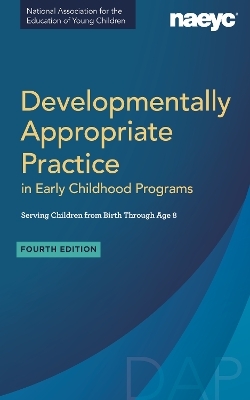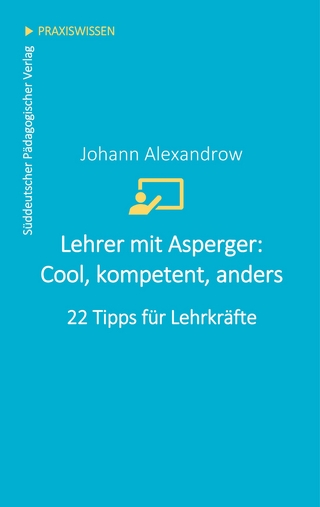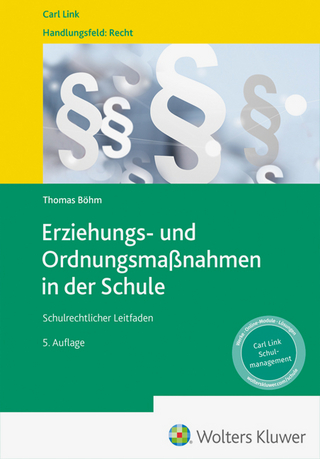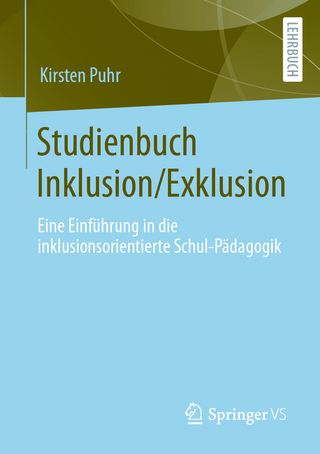
Developmentally Appropriate Practice in Early Childhood Programs Serving Children from Birth Through Age 8, Fourth Edition (Fully Revised and Updated)
National Association for the Education of Young Children (Verlag)
978-1-938113-95-6 (ISBN)
- Lieferbar (Termin unbekannt)
- Versandkostenfrei innerhalb Deutschlands
- Auch auf Rechnung
- Verfügbarkeit in der Filiale vor Ort prüfen
- Artikel merken
The long-awaited new edition of NAEYC’s Developmentally Appropriate Practice in Early Childhood Programs is here, fully revised and updated! Since the first edition in 1987,this book has been an essential resource for the early childhood education field. Early childhood educators have a professional responsibility to plan and implement intentional, developmentally appropriate learning experiences that promote the social and emotional development, physical development and health, cognitive development, and general learning competencies of each child served.
But what is developmentally appropriate practice (DAP)? DAP is a framework designed to promote young children’s optimal learning and development through a strengths-based approach to joyful, engaged learning. As educators make decisions to support each child’s learning and development, they consider what they know about (1) commonality in children’s development and learning, (2) each child as an individual (within the context of their family and community), and (3) everything discernible about the social and cultural contexts for each child, each educator, and the program as a whole.
This latest edition of the book is fully revised to underscore the critical role social and cultural contexts play in child development and learning, including new research about implicit bias and teachers’ own context and consideration of advances in neuroscience. Educators implement developmentally appropriate practice by recognizing the many assets all young children bring to the early learning program as individuals and as members of families and communities. They also develop an awareness of their own context. Building on each child’s strengths, educators design and implement learning settings to help each child achieve their full potential across all domains of development and across all content areas.
A range of early childhood experts will be key contributors including the following: NAEYC Volume Editor: Susan Friedman is senior director of publishing and content development at NAEYC. In this role, she leads the content development work of NAEYC’s books and periodicals teams. Ms. Friedman is coeditor of Each and Every Child: Teaching Preschool with an Equity Lens. She has extensive prior experience creating content on play, developmentally appropriate uses of media, and other topics for educators and families. She began her career as a preschool teacher at City and Country School in New York City. She holds degrees from Vassar College and the Harvard Graduate School of Education. Volume Editors and Contributing Editors: Sue Bredekamp, PhD, is an early childhood education consultant on developmentally appropriate practice, curriculum, teaching, and professional development. She coedited NAEYC’s 1986, 1997, and 2009 editions of Developmentally Appropriate Practice, and she developed and directed NAEYC’s accreditation system for early childhood programs. Dr. Bredekamp is the author of an introductory teacher education textbook, Effective Practices in Early Childhood Education: Building a Foundation, Third Edition (Pearson, 2016). Marie Masterson, PhD, is director of quality assessment at the McCormick Center for Early Childhood Leadership. She is a licensed teacher, national speaker, and author of many books and articles that address research-based, practical skills for high-quality teaching, children’s development and behavior in cultural contexts, family engagement, and family child care. Dr. Masterson provides content expertise and consultation to organizations and systems involved in quality improvement and leadership development. Barbara Willer, PhD, retired from NAEYC after 35 years of service and leadership. During her tenure, Dr. Willer led many substantive projects to further NAEYC’s mission. The capstone efforts of her contributions to NAEYC and the field were leading the development of the position statements “Advancing Equity in Early Childhood Education” (2019) and “Developmentally Appropriate Practice” (2020). Brian L. Wright, PhD, is associate professor and coordinator of the early childhood education program as well as coordinator of the middle school cohort of the African American Male Academy at the University of Memphis. Dr. Wright is author of The Brilliance of Black Boys: Cultivating School Success in the Early Grades, with contributions by Shelly L. Counsell, which won the National Association for Multicultural Education’s 2018 Phillip C. Chinn Book Award.
List of Vignettes
Acknowledgments
Susan Friedman
Editors, Authors, and Contributors
Foreword
Tammy Mann
Preface
Susan Friedman
About this Book
Position Statement
Part 1: Developmentally
Appropriate Practice in Context
Chapter 1: Intentional Teaching: Complex Decision Making
and the Core Considerations
Sue Bredekamp and Barbara Willer
Chapter 2: The Principles in Practice: Understanding
Child Development and Learning in Context
Iheoma U. Iruka
Chapter 3: Context Matters: Reframing Teaching in
Early Childhood Education
Susan Friedman, Marie Masterson, and Brian L.
Wright
Chapter 3 Appendix: Theoretical Frameworks for
Understanding Child Development and Context
Brian L. Wright
Chapter 4: Teaching Content in Early Childhood Education
Douglas H. Clements and Tanya S. Wright
Chapter 5: The Power of Playful Learning in the Early
Childhood Setting
Jennifer M. Zosh, Caroline Gaudreau, Roberta
Michnick Golinkoff, and Kathy Hirsh-Pasek
Part 2: Developmentally
Appropriate Practice in Action
Chapter 6: Creating a Caring, Equitable
Community of Learners
Brian L. Wright
Chapter 7: Engaging in Reciprocal Partnerships with Families and Fostering Community
Connections
Lorena Mancilla and Patricia Blanco
Chapter 8: Observing, Documenting, and Assessing
Children’s Development and Learning
Catherine Scott-Little, with Kathy L.
Reschke
Chapter 9: Teaching to Enhance Each Child’s
Development and Learning
Marie Masterson
Chapter 10: Planning and
Implementing an Engaging Curriculum to Achieve Meaningful Goals
Marie Masterson
Chapter 11: Demonstrating Professionalism as an Early
Childhood Educator
Losmeiya Huang, Sim Loh, and Ashley Simpson, with Lauren
Hogan, Lucy Recio, and Mary Harrill
Appendices
Appendix A: Developmentally Appropriate Practice in
Action: Educator Snapshots and Reflections
Appendix B: Digging Deeper into Knowledge
Appendix C: Changes to the Position Statement, Changes to
the Book: Resources and Strategies for Faculty
Camille Catlett, Eva Horn, and Florianna J. Thompson
Appendix D: Creating and Implementing Developmentally
Appropriate Curriculum: A Guide for Public School Audiences
Jason Sachs and Chris Bucco
Appendix E: Developmentally Appropriate Practice in the
Early Learning Setting: Tips and Resources for Early Childhood Educators
Glossary
References
Index
| Erscheinungsdatum | 06.08.2021 |
|---|---|
| Co-Autor | Barbara Willer, Sue Bredekamp |
| Zusatzinfo | Figures and tables |
| Verlagsort | Washington DC |
| Sprache | englisch |
| Maße | 215 x 279 mm |
| Themenwelt | Sozialwissenschaften ► Pädagogik ► Bildungstheorie |
| Sozialwissenschaften ► Pädagogik ► Vorschulpädagogik | |
| ISBN-10 | 1-938113-95-0 / 1938113950 |
| ISBN-13 | 978-1-938113-95-6 / 9781938113956 |
| Zustand | Neuware |
| Informationen gemäß Produktsicherheitsverordnung (GPSR) | |
| Haben Sie eine Frage zum Produkt? |
aus dem Bereich


